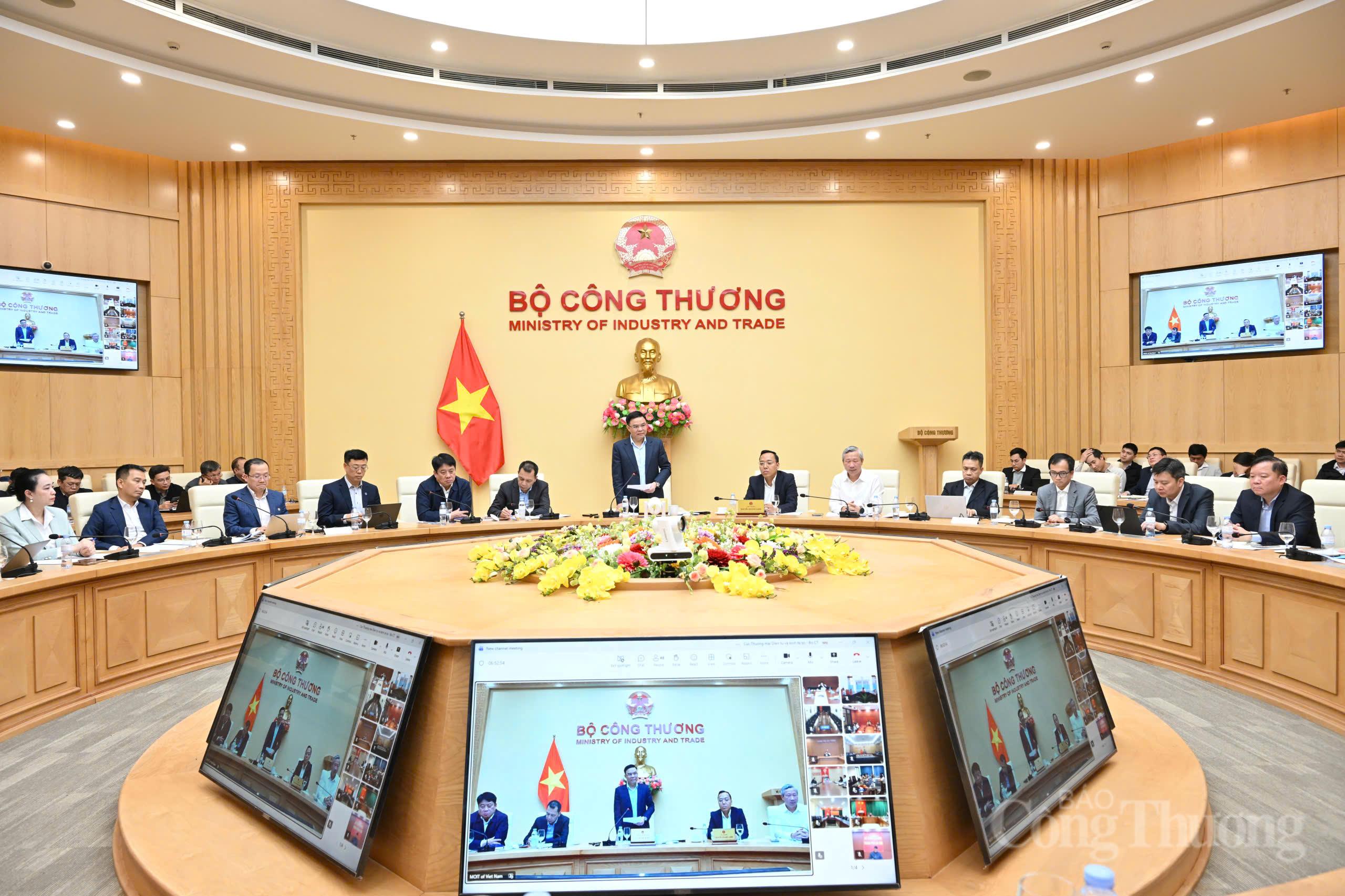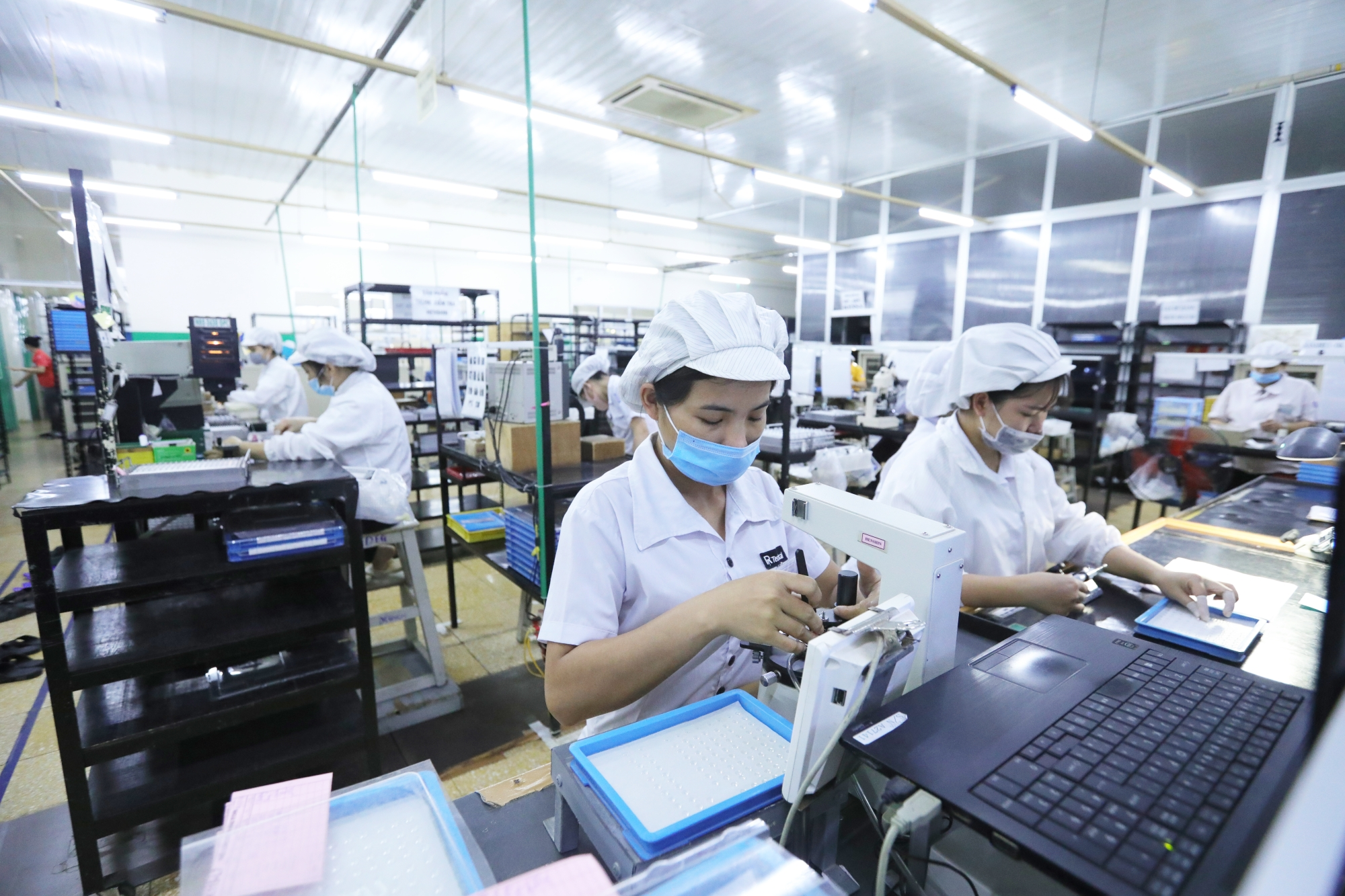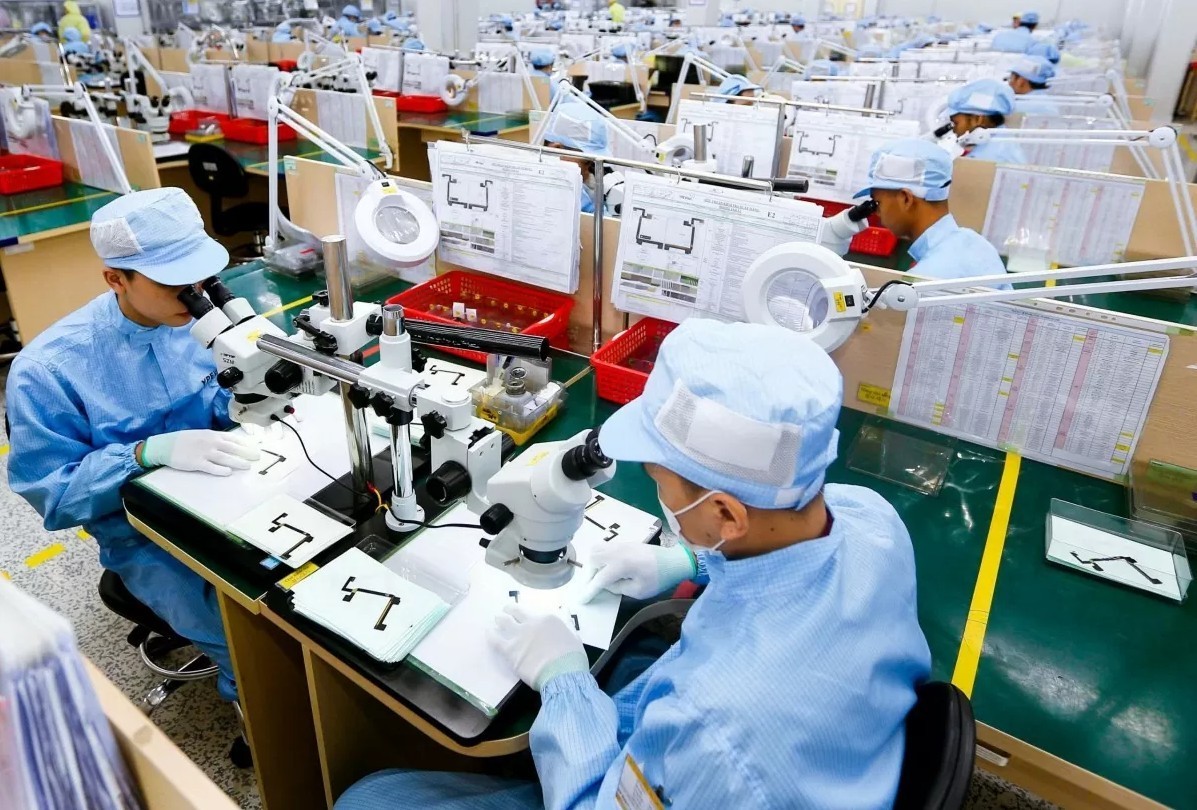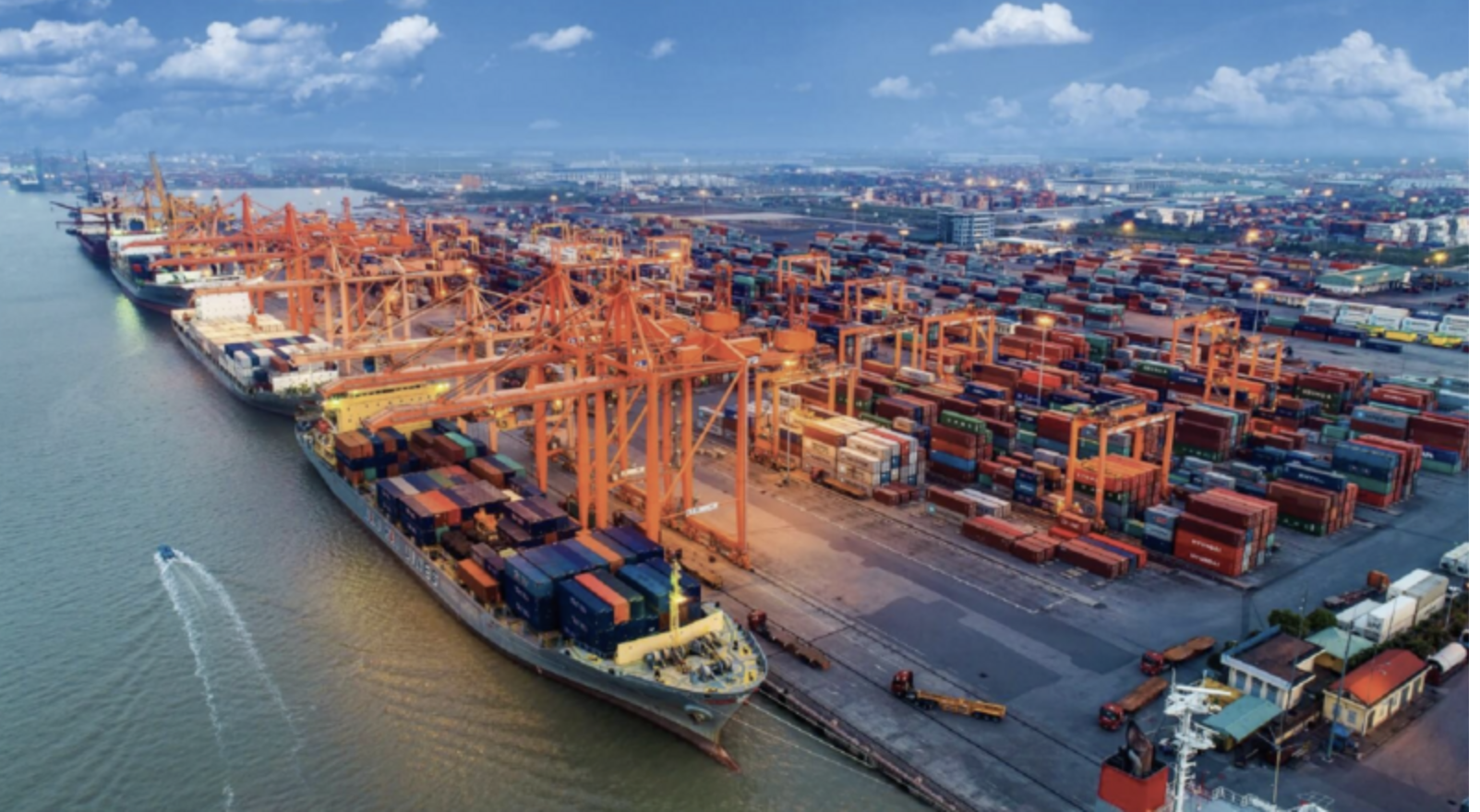
The MoIT strengthens the power supply and key energy projects
19:05 | 23/03/2025 14:42 | 31/01/2026News and Events
Great potential, Yet untapped
According to Do Thi Thuy Huong, Executive Committee Member of the Vietnam Electronic Industries Association (VEIA), Vietnamese businesses are facing a tremendous opportunity to integrate into global value chains.
This opportunity stems not only from government policies and mechanisms but also from Vietnam’s investment climate. The country is increasingly seen as an attractive destination for international investors, evidenced by the growing presence of major global corporations, many of which are aiming to expand localization.
 |
| Many global corporations are aiming to enhance their localization efforts in Vietnam. |
As reported by the Foreign Investment Agency under the Ministry of Finance, by the end of April 2025, Vietnam had attracted more than 500 FDI projects from over 140 countries and territories. Among these investors are global giants in various sectors such as Honda, Toyota, Canon, LG, Samsung, NVIDIA, and Apple.
Notably, according to Do Tien Thinh, Deputy Director of the National Innovation Center (Ministry of Finance), some of these multinational corporations have expressed strong interest in increasing localization in Vietnam. This, he noted, is a significant opening for local businesses to join global supply chains.
Despite the opportunities, Luong Minh Huan, Director of the Enterprise Development Institute under the Vietnam Chamber of Commerce and Industry (VCCI), believes Vietnamese enterprises have yet to fully seize them.
A recent VCCI survey shows a lack of strategic direction among local firms. Specifically, 64.7% of Vietnamese enterprises had no preparation for entering global supply chains; only 15.3% had long-term strategies for integration; 10.2% had mid-term plans; 5.4% had short-term action plans; and just 4.4% had taken concrete steps.
Furthermore, 53.54% of respondents said they had not defined any specific goals when joining global value chains.
This underperformance partly explains Vietnam’s lower-than-expected localization rates. According to Luong Minh Huan, localization in the electronics industry stands at merely 5–10%. Most electronic products in Vietnam are assembled using imported components with low technological and value-added content.
The localization rate for textiles and footwear is around 40–45%, and for mechanical engineering, about 30%. In the automotive sector, Vietnam lags far behind its regional peers such as Thailand, Indonesia, and Malaysia.
“In terms of parts and components, Vietnam primarily produces basic items such as seats, glass, and tires. Meanwhile, high-tech and high-value components like brake systems, clutches, gearboxes, and steering systems are still imported,” Luong Minh Huan stated.
Boosting local participation
Luong Minh Huan pointed out that many Vietnamese enterprises struggle to meet delivery deadlines and technical standards. Over 60% report difficulty or severe difficulty in delivering on time; more than 70% face challenges with order volumes; and over 80% encounter issues with technical specifications and compliance.
The root causes include insufficient supportive policies, lack of financial resources, weak supply chain linkages, limited trade promotion, and a general reluctance to shift from traditional business practices.
 |
| Vietnamese enterprises have yet to capitalize on opportunities to join global value chains. |
Do Tien Thinh emphasized that multinational corporations often bring entire support industry ecosystems when they invest in Vietnam, making it harder for local firms to penetrate these networks.
In high-tech sectors, these global players also introduce new products every year—sometimes 1–2 new launches annually—requiring Vietnamese suppliers to make rapid production-line upgrades. However, limited capital remains a major barrier for domestic enterprises.
To better support local businesses, Do Tien Thinh recommended focusing on incubation programs for small and medium enterprises (SMEs), helping them engage with multinational corporations, understand their requirements, and assess their own capabilities.
Beyond government support, Vietnamese enterprises must proactively demonstrate their capacity to meet the expectations of FDI firms and build credibility as reliable partners in supporting industry development.
Chu Viet Cuong, Director of the Center for Industrial Development Support under the Ministry of Industry and Trade, added that Vietnam has been implementing industrial support programs since 2016. These efforts include offering services to local manufacturers and connecting them with multinational corporations and tier-one suppliers like Samsung and Toyota, aiming to enhance domestic firms’ capacity and promote them as global suppliers.
"The Center remains committed to supporting Vietnamese enterprises in becoming solid contributors to global value chains," stressed Chu Viet Cuong.
| Despite the growing demand for supporting industries from foreign investors in Vietnam, the participation of local enterprises remains limited—particularly in high-tech segments. |

19:05 | 23/03/2025 14:42 | 31/01/2026News and Events

19:05 | 23/03/2025 22:14 | 30/01/2026News and Events

19:05 | 23/03/2025 16:24 | 30/01/2026Science - Technology

19:05 | 23/03/2025 09:54 | 30/01/2026Cooperation

19:05 | 23/03/2025 09:40 | 30/01/2026Investment